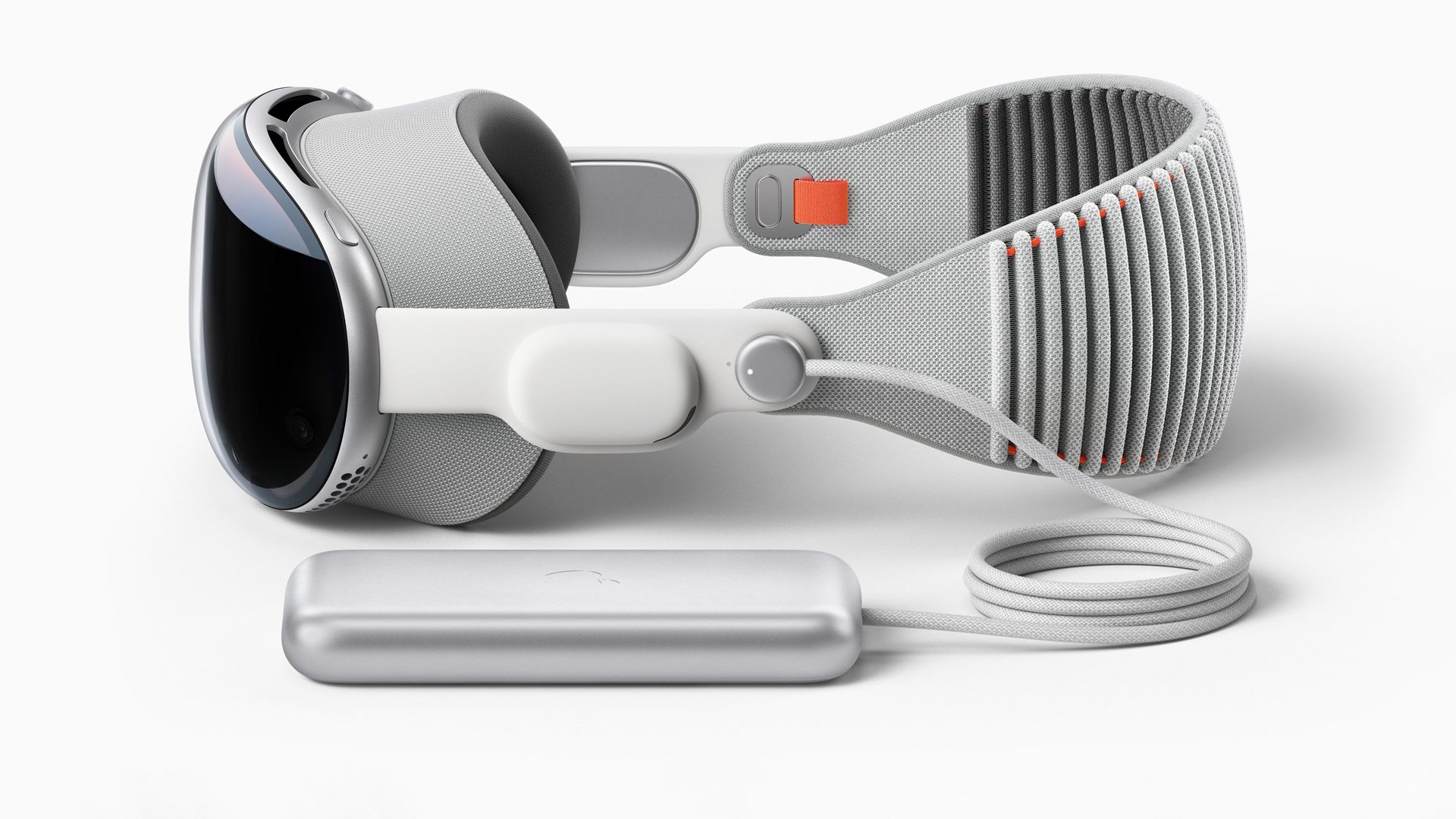If a recent Bloomberg report from Mark Gurman holds true, not only is Apple not planning to release a motion controller for Vision Pro in the future, but it may not even support third-party VR controllers at all.
When the Cupertino tech giant unveiled Vision Pro last month, it didn’t emphasize the headset’s ability to potentially support VR games, which have typically been designed around motion controllers like Meta Touch or Valve’s Index controller for SteamVR headsets.
Among Vision Pro’s lineup of content, which features a standard suite of Apple ecosystem and standard content viewing apps, the studio only off showed a single VR app, Rec Room, the prolific social VR app that supports most major VR headsets (excluding PSVR 2 for now) in addition to consoles, desktop, and both iOS and Android mobile devices.

Mark Gurman, one of the leading journalists reporting on unreleased Apple tech, maintains that Apple is neither actively planning a dedicated controller, nor planning support for third-party VR accessories.
When the $3,500 headset launches in early 2024, this would leave Vision Pro users relying on the headset’s built-in hand and eye-tracking, which admittedly worked very well in our hands-on. It’s also using Siri-driven voice input, Bluetooth and Mac keyboard support, and PlayStation 5 and Xbox controllers for traditional flatscreen games.
For VR gaming though, hand and eye-tracking lack the haptic feedback required for many game genres, meaning what VR games do come to Vision Pro will likely require overhauls to make sure hand-tracking is fully baked in.
Provided Apple sticks with its purported internal plan to not support VR controllers, that would essentially shunt development away from VR gaming and towards the headset’s AR abilities. For Apple, that’s where the ‘real’ money presumably lies.
Denny Unger, founder and lead of pioneering VR studio Cloudhead Games, explains the move as a way to provide a strong development foundation now for Apple’s AR glasses of the future, which will be both more affordable and more capable of replacing a standard smartphone than the admittedly bulky MR headsets of today.
For more from Unger, who heads one of the most successful VR studios, check out his Road to VR guest article to learn more about Vision Pro and why Apple may be launching an AR headset in VR clothing.







